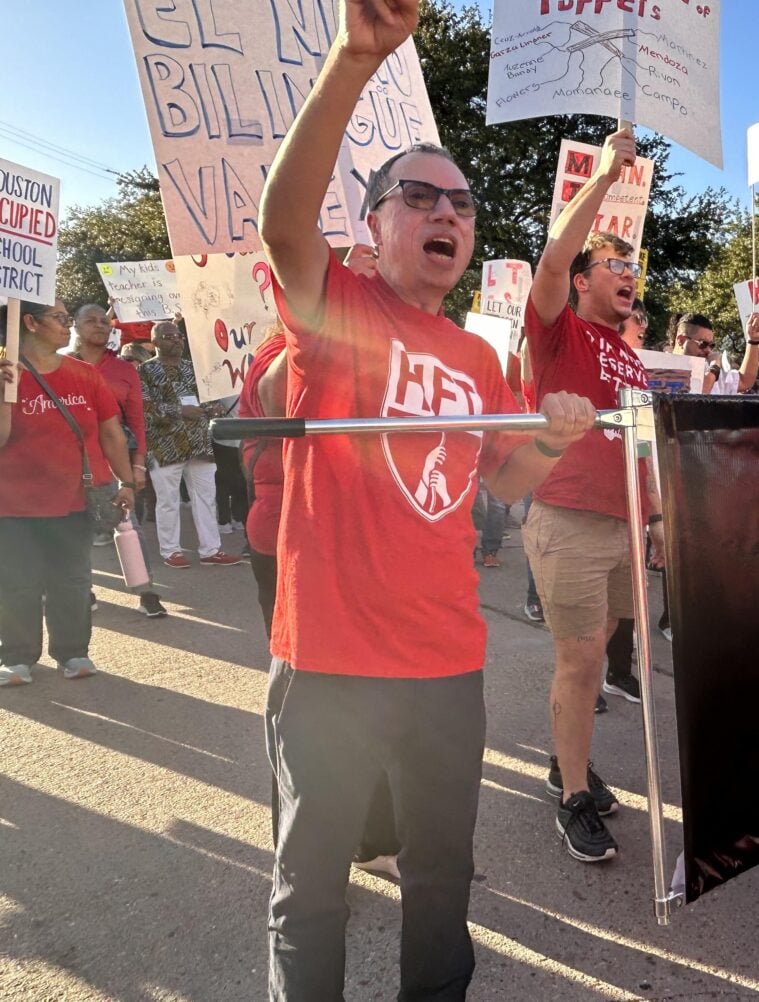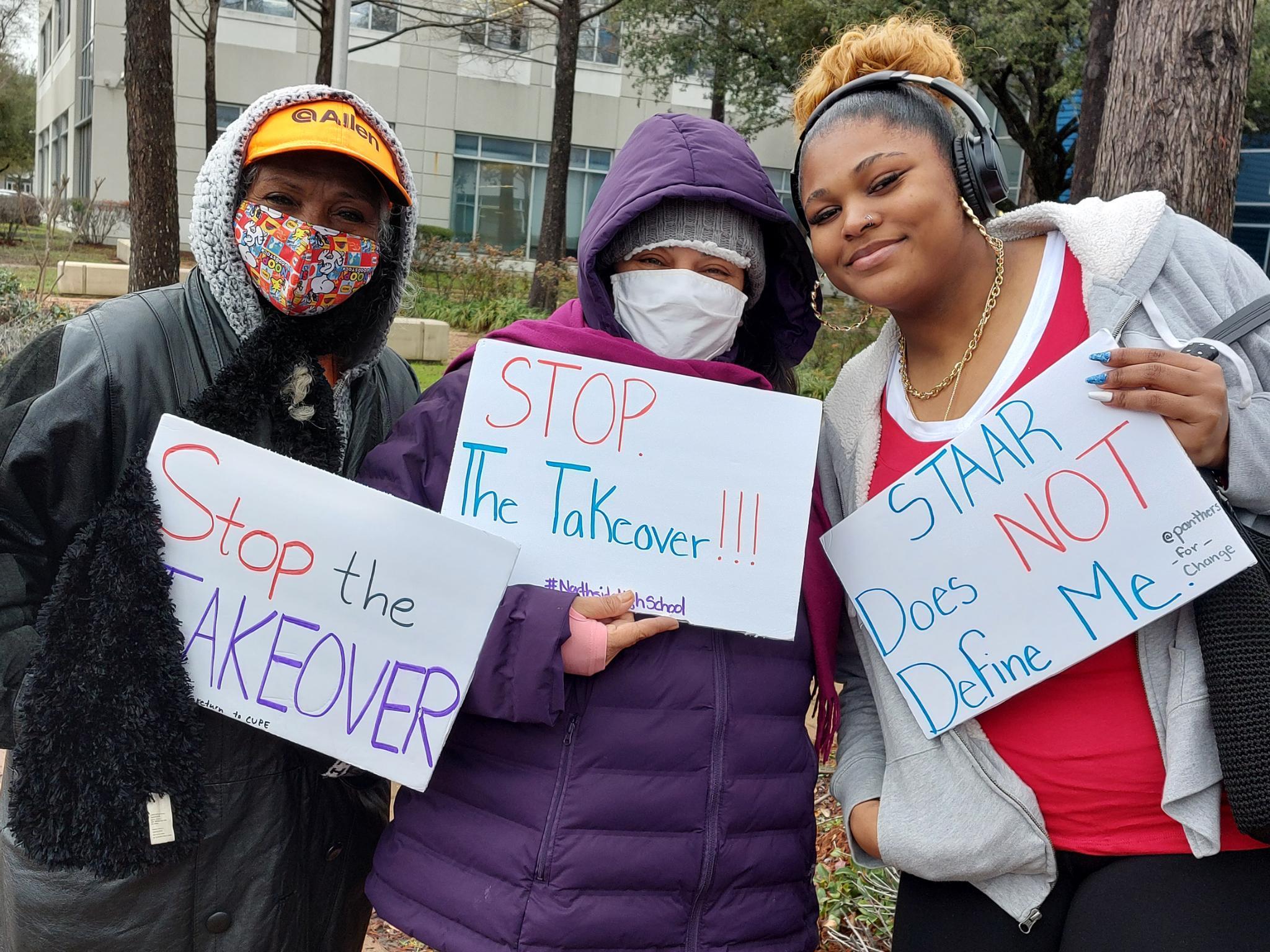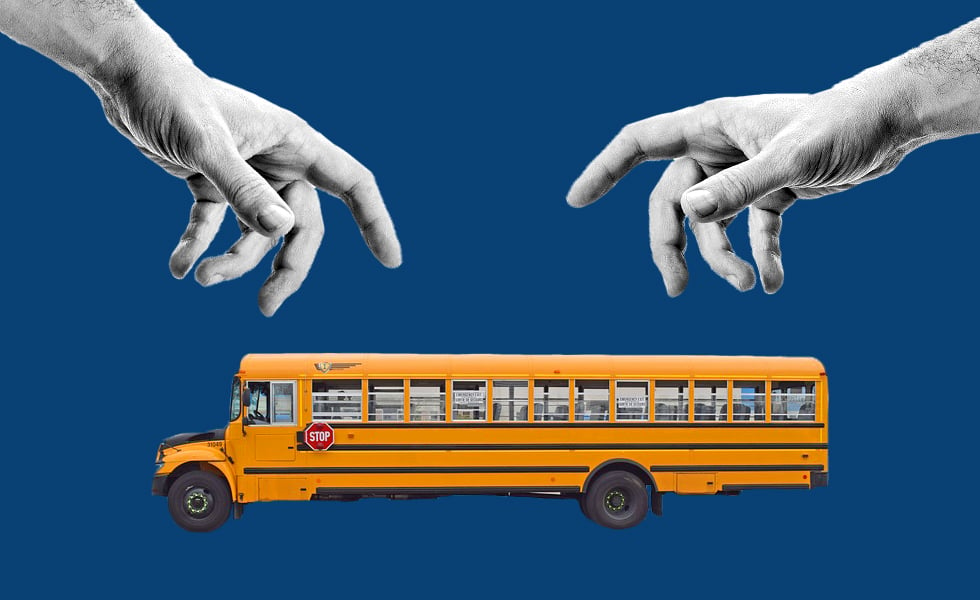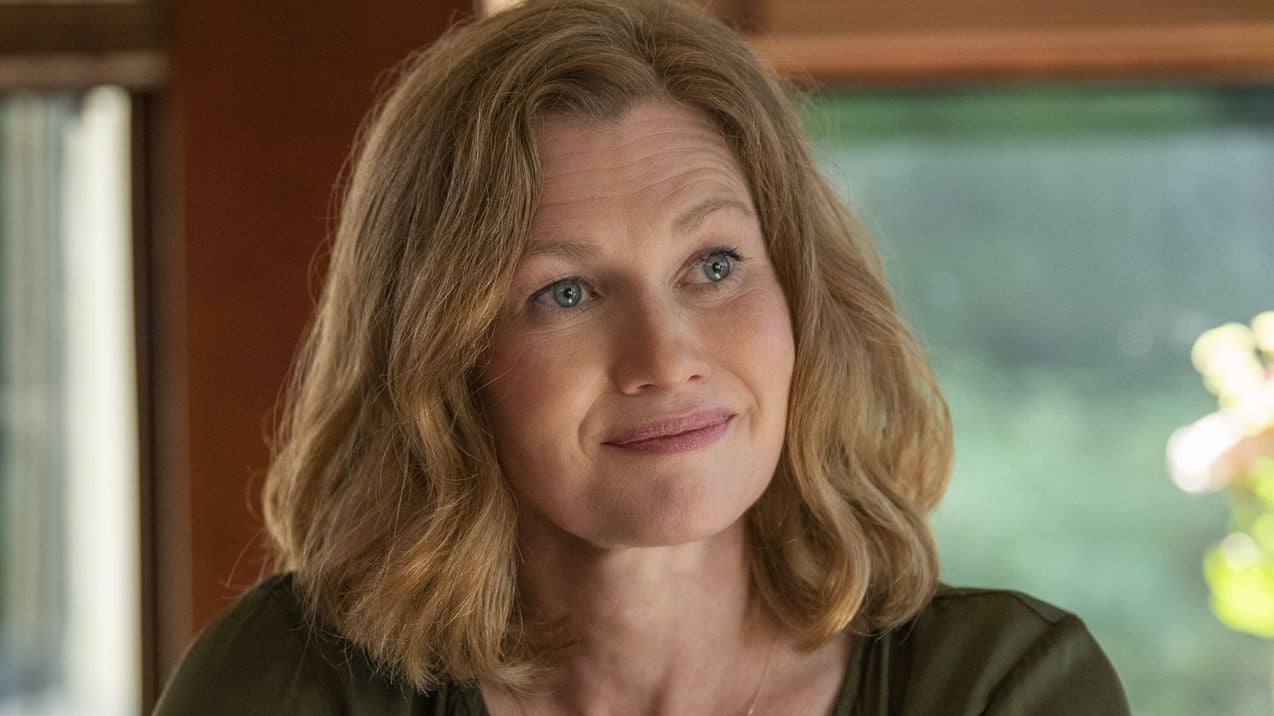
Mireille Enos Found ‘Hope’ in Lucky Hank
The Sugar Land born actress talks about her training at Houston’s prestigious Kinder High School for the Performing And Visual Arts.
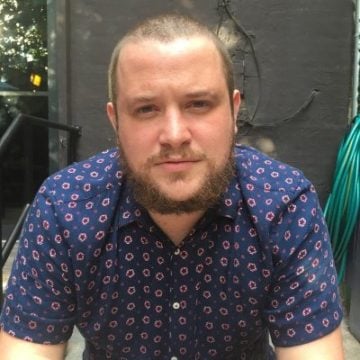
After establishing herself as one of the most compelling dramatic actors working in theater and television, Mireille Enos knew it was time for a change.
She earned a Tony nomination in 2005 for her portrayal of Honey in the dark comedy drama Who’s Afraid Of Virginia Woolf. Then, in 2011, Emmy and Golden Globe nominations for her performance as homicide detective Sarah Linden in the acclaimed crime thriller series The Killing. At the same time she’s also drawn acclaim for her work on Big Love, Hanna, Good Omens, and The Catch, while also appearing in the films If I Stay, Never Here, Gangster Squad, and World War Z.
After a decade and a half of serious and dark material, during the COVID-19 pandemic Enos decided that she wanted to take on different roles. “I just thought, the world needs something lighter. I need something lighter. I need a little hope. I need some humanity,” said Enos.
When Enos started to read the pilot script for Lucky Hank, she knew after just a few pages that it was the right project, despite the fact that her character, Lily, wasn’t even in the opening scene.
“Hank is in the classroom. He’s just hit his breaking point. He has this incredible monologue where everything rolls out of him,” continued Enos. “It’s so rare that television characters are given that much language. It was so articulate and intelligent. I just thought, ‘I don’t know who Lily is. I haven’t met her yet. But I want to be in this world. This is the door I want to walk through.’”
“I want to be in this world. This is the door I want to walk through.”—Mireille Enos on Lucky Hank script
Soon enough, Enos was shooting the comedic drama, which stars Bob Odenkirk as Hank Devereaux Jr., an English department chairman at an underfunded college going through a personal and professional midlife crisis. Lucky Hank debuts on AMC on March 19.
Last month, the Texas Observer spoke with Enos about Lucky Hank, her Texan roots, and how training at Houston’s prestigious Kinder High School for the Performing And Visual Arts prepared her for her astounding career.
When did you move to Texas?
We moved to Sugar Land when I was four and a half. So really the only memories I have are from Texas. Sugar Land at the time was very rural. There were two dead-end streets and woods. We had a half acre of flatland and a bunch of chickens. It was scrappy. I had a funny and wonderful combination of cultures in my home. My dad was from Texas, born and raised. My mother was French, Italian, and an intellectual. My father was also very smart in his own right. But he knew how to work with his hands. He was a carpenter. He was a mechanic. My mother was the cinephile. I would be helping my father work on cars then I would be watching French movies at night with my mother. That made interesting people in the family.
It sounds like you combined your father’s technical skills with your mother’s creativity.
All the aspects of my brain were being stimulated by these very different parents. They created five kids who are all artists. The public schools in Sugar Land were totally fine, but they were standard suburban Texas public schools. My mother started to hunt around for different ways of supporting her kids. She found these magnet programs, which were so wonderful. So I ended up going to Houston’s High School for the Performing And Visual Arts at the age of 14. It was an awesome foundation for what ended up being this career that I’m now in.
What were your first memories of performing?
My oldest brother, John, who is 11 years older than me, when we moved, he went into the high school theater program. So John was doing plays. When I was little and tiny, I was going and watching my big brother do these plays. It was magic. My mother had this open door policy at our house. There were always kids around. It was just full of energy and brightness and creativity. I was quite shy actually when I was young. But there was this combination of incredible support and incredible power in acting.
“There was this combination of incredible support and incredible power in acting.”
Did acting help you find your true personality?
Exactly. Also you’re given a script and somebody else gives you the words to say. Plus, when you say them, people are quiet and they listen.
Was it daunting to attend such a prestigious school like the High School For The Performing And Visual Arts?
It was thrilling. My second brother started there as a junior as a classical guitarist. My older sister went there for theater. My little sister went there for the dance department. It was a familiar space already when I went there. I remember thinking, “My people are here.” As a teenager, you want to find your people. You don’t want to feel like an alien. The teachers were just wonderful. We were doing really rigorous training. It was three hours a day in your art area. Whether that’s acting, voice, movement, or set design. Then doing plays in the evenings. It was just wonderful.
It sounds like the school set you up for the profession.
I don’t know the percentage of students who ended up going on to have careers but it’s a really powerful place. Those are the critical years, where there can be so much meanness. People there were defined by their talents and their intelligence. There didn’t need to be meanness and infighting. We were all there with a purpose.
Was everyone elevating each other, rather than competing?
Absolutely. They really worked hard at making it feel like a family. Everyone does their best work and excels when you help each other. It was a beautiful experience.
What attracted you to Lucky Hank?
I had been spending a lot of years playing roles in dark situations. People who carried around a lot of secrets and the weight of that. It’s fascinating storytelling when you have a secret. But I definitely got weary. Especially with the combination of finishing Hanna in the midst of COVID and all of the isolation the whole world was feeling. I started telling my team, “I don’t know how long it’ll take. I know people definitely think of me as a serious actor. But I feel committed to holding out and telling a human story with a laugh. Something that looks a little brighter.” It took a full year of people being like, “I’m not sure if she can do that.”
Did you have to go through a lot of scripts then to find Lucky Hank?
I’m lucky enough to say lots of scripts passed my way. But they were still just dark and heavy. I just kept saying, “No, thank you.” I held out. Then Lucky Hank showed up. Co-creator Aaron Zelman and I worked on The Killing together. I knew him from that. Obviously that’s a very dark story. He worked on this with Paul Lieberstein, who is from The Office. So it was this incredible meeting of talents and voices.
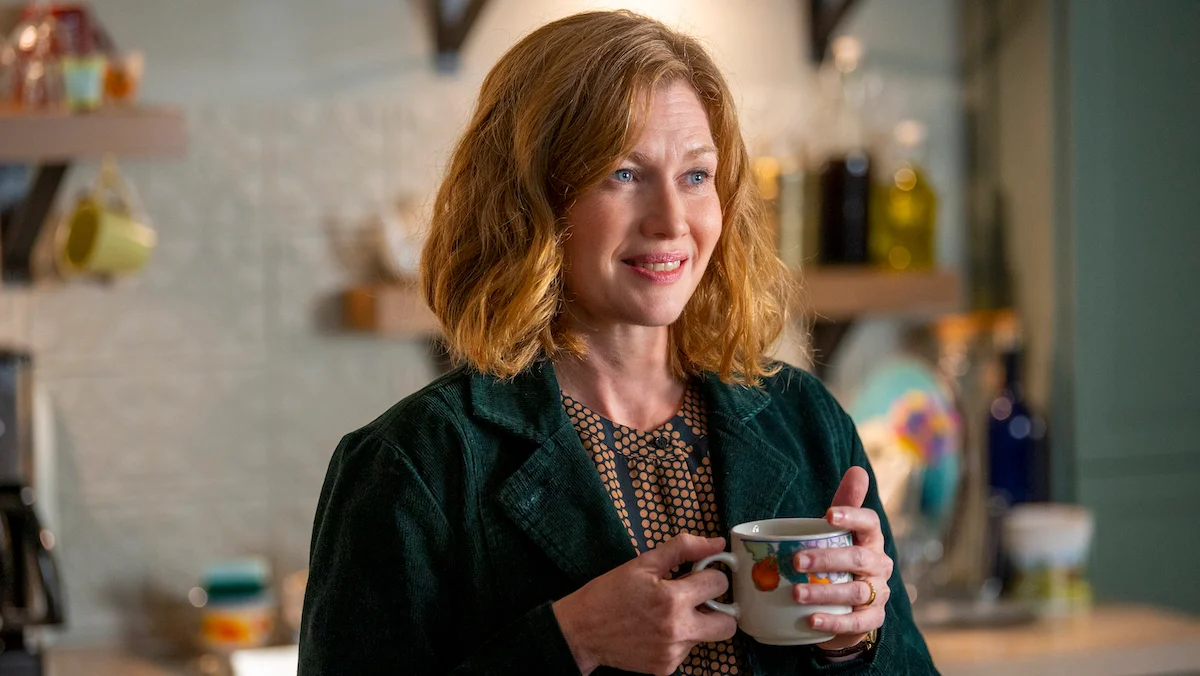
Was Bob Odenkirk already lined up to play the title role?
Bob was already involved. I read it late on a Friday night. I started sending emails immediately. Monday morning, more emails. That week, Alan [Ruck, Mireille’s husband] was shooting Succession in New York. So we were on the East Coast. Bob was also there. We sat down and had a two-hour lunch and conversation. It was awesome. Then the rest is history. They asked me, “Would you come and play?”
Was there something about the character of Lily that you really wanted to do?
It was the opposite actually. Normally, when I read a script, and I know that it’s going to be my next thing, it’s because I can hear the character. I could hear Sarah Linden. I could hear Marissa Wiegler (Hanna). This one was the opposite. I fell in love with the world. Actually I was having a really hard time hearing Lily.
Was that because you were working with lighter material?
Possibly. It’s also, maybe, there’s not a lot of Lily in the first script. Later, Aaron said to me, “I think the truth is, we weren’t 100 percent sure of the character, too.” I could hear Bob, though. It was so clear. There’s other characters that I was like, “Yep, I got it.” Then I would get to Lily and it wasn’t the same. I started reading Richard Russo’s novel, which the show is based on. Bob and I started emailing and brainstorming thoughts. I was having creative conversations with the writers. I started to get a sense of her. A hunch about who she might be. But we really found it on our feet. I walked onto set the first day and I told the writers, Bob, and director Peter Farrelly, “I feel really vulnerable right now. Because I’m not exactly sure what my job is.” That was a wildly uncomfortable feeling.
Was it similar to working in theater?
I think the truth is, I have been playing people who have such extreme confidence and brevity. In New York, when I was doing theater, I was playing really broad characters. People that are very different to me. It had been a while since I had got to do that. It took a minute to trust the process. Of course, as soon as we started, we got the rhythm. It was the same for Bob. He had been doing Better Call Saul. He has this incredible history in comedy. But he’d been doing Saul for a long time. He wanted to find the tone, too. We were all a little vulnerable. But pretty quickly, we started to find our sea legs. We figured out the magical tone of this thing which just rocks this really human line between absurdity, silliness, and gravitas.
This interview has been edited for length and clarity.

